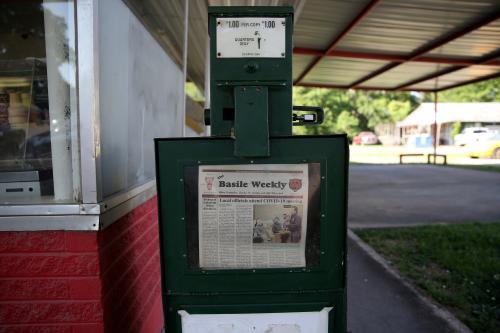Last week, shareholders at Gannett and GateHouse, the nation’s two largest newspaper chains, voted to approve the merger of the two companies. Gannett, which publishes USA Today, owns just over 100 newspapers while New Media Enterprises, GateHouse Media’s parent company, owns nearly 400 American newspapers across 39 states. When combined, the new company will own one out of every six newspapers in the United States. The deal is expected to close November 19th and has left many already concerned about America’s local journalism crisis afraid of what lies ahead.
When executives at the two companies first met to discuss the merger this past summer, they hoped to save $200 million annually by combining. When the deal was announced in August, the companies said annual cost savings would add up to $300 million a year. According to some reports, however, the number discussed internally has risen yet again to $400 million annually.
Both Gannett and GateHouse have a reputation for cutting staff across their newsrooms. In the past two years alone, the number of employees at Gannett has fallen by one-fifth. The merger will likely entail another round of layoffs for local newspapers across the country to achieve the aggressive cost savings put forward by the companies’ executives. No one knows for sure just how many employees will be laid off in the wake of the merger, but estimates put the number between 3,500 and 4,000. There are 37,900 newsroom employees employed by U.S. newspapers today. If the expected layoffs occur, that will mean a significant reduction of the nation’s total newspaper workforce.
Over 2,000 American newspapers have ceased production in the last 15 years, leaving millions of Americans without a vital source of local news. But a city or town doesn’t need to lose a newspaper to feel the effects of the local journalism industry’s decline. Of the newspapers remaining, many have laid off reporters, reduced coverage, and pulled back circulation. Discussing the merger between Gannett and GateHouse, the chairman and chief executive of New Media said that the merger will help in “sustaining journalism in hundreds of markets across the country.” However, the newly combined company is not likely to pursue this end by making additional investments in the production of original news content and the workers who produce it; observers such as The Washington Post’s Margaret Sullivan predict that it will simply lead to more cuts.
And those laid off in the transition may find themselves forced to abandon the journalism profession as few employment options are available among the nation’s cash-strapped newsrooms. McClatchy, which will become the second-largest newspaper chain in the U.S. after Gannett and GateHouse combine, employs fewer individuals than the number of workers expected to be laid off by Gannett and GateHouse. While digital media ventures in large, coastal cities may be adding jobs, their growth is not large enough to offset the steep job losses that have plagued the nation’s newspapers. In the next year, it is likely the country will see thousands of reporters and editors previously employed at the local newspapers owned by Gannett and GateHouse leave the industry altogether.
Thousands of communities across the U.S. are already living with the costs of the local news crisis. As I detail in recent report, places that have seen local news sources and reporters disappear are more likely to see an increase in the costs of municipal and revenue bonds and fewer candidates running for mayor. And as local newsrooms have suffered, turnout in state and local elections has declined.
But the decline in local journalism is a national concern too. Voters in communities that experience a newspaper closure are more likely to vote for the same party for president and senator compared to voters in communities that did not lose a local newspaper, exacerbating national political polarization. Meanwhile, the poor health of local newspapers means national reporters have fewer local outlets to turn to and fewer sources on the ground to inform national coverage.
It was hard to detect the local news crisis as it was unfolding. As The Atlantic’s Derek Thompson writes, the crisis has been “The opposite of a sudden and shocking calamity exhaustively covered by every media organization, it is, rather, a thousand local disappearances, with nobody left to report on what has gone away.”
Each little cut inflicted on a community that saw its local newspaper disappear or become a shell of its former self has cumulatively resulted in a nationwide wound. If the industry has continued to decline during a period of economic expansion, it’s hard to imagine what lies ahead should the nation enter a recession.
There are a number of ways in which the non-profit media ventures and lawmakers can stem the losses. It should start with recognizing that the local journalism crisis confronting many communities in the U.S. threatens to become worse, and that a constitutional and public commitment to a free press on its own will not ensure the future economic viability of local news.
Note: The original version of this piece estimated a 10% reduction in the total newspaper workforce in the country as a result of projected layoffs arising from the merger. It has been updated to remove that figure, since estimates only include newsroom staff specifically and not all employees. It also previously misstated the total number of employees employed by GateHouse and Gannett combined across all business functions as representing only newsroom employees and counting them all as a percentage of the national newsroom workforce. Those figures have been removed.







Commentary
How the Gannett/GateHouse merger could deepen America’s local news crisis
November 18, 2019